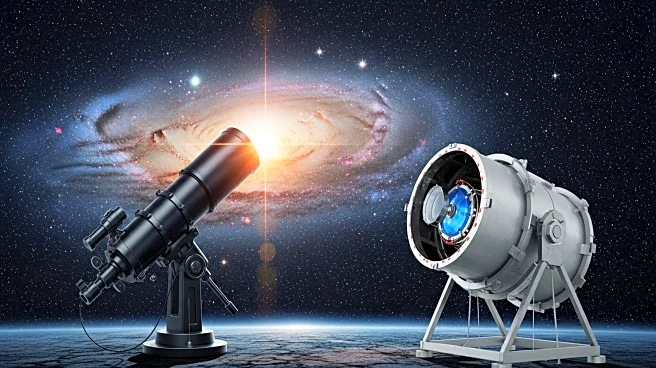What's Happening?
A recent theoretical paper by MIT physicists Alexandra Klipfel and David Kaiser proposes that the 2023 neutrino event, KM3-230213A, could be explained by Hawking radiation emitted from a primordial black hole. This event, characterized by a neutrino with an unprecedented energy of 220 petaelectronvolts, may represent the first observational evidence of such radiation. The researchers suggest that primordial black holes, formed shortly after the Big Bang, could account for this and other high-energy neutrino events, potentially offering insights into the composition of dark matter.
Why It's Important?
This hypothesis, if confirmed, could provide groundbreaking evidence for the existence of primordial black holes and Hawking radiation, both of which have significant implications for our understanding of the universe. It could also offer a partial solution to the dark matter mystery, suggesting that these black holes might constitute a significant portion of dark matter. The study highlights the potential of neutrino astronomy to uncover new cosmic phenomena and deepen our understanding of the universe's fundamental components.
What's Next?
Further research and experiments are needed to confirm the presence of Hawking radiation and the role of primordial black holes in high-energy neutrino events. The scientific community may focus on developing more sensitive detection methods and conducting additional observations to validate these findings. If successful, this could lead to a paradigm shift in astrophysics and cosmology, providing new insights into the early universe and the nature of dark matter.









